They say a country gets the politicians it deserves. In that case, all of us Indians need to do better, immediately. For our elected leaders rarely make us proud; most of the times, they make us cringe. Rediff.com takes a look at politicians across India who made headlines this year, often for the wrong reasons, rarely for the right ones.
A Raja
Prime Minister Manmohan Singh reportedly had reservations about reallocating telecom ministry to Dravida Munnettra Kazhagam leader A Raja, who had already faced rumours of irregularities during the United Progressive Alliance's first stint. But Dr Singh finally had to yield to the pressures of coalition politics and hand over the 'lucrative' portfolio to Raja.
It is a decision he must have regretted considerably since, after the comptroller and auditor general of India indicted Raja for independent India's most massive scam. Raja became a household name after he dug in his heels and refused to resign over the Rs 1,70,000 crore 2G scam. He finally lost his seat, and is now being probed by the Central Bureau of Investigation for his role in the scam.
Suresh Kalmadi
Had A Raja not beaten him by the sheer magnitude of the 2G scam, Suresh Kalmadi would have taken home the crown of the 'politician facing the worst corruption charges' in 2010.
By the end of the Commonwealth Games in Delhi, political experts and the media had lost count of the number of scams, irregularities and questionable deals the CWG saw under Kalmadi's watch. Almost every aspect of the Rs 35,000 crore Games were allegedly milked for profit. The top sports administrator in the country was booed loudly by thousands during the opening and closing ceremony of the Games -- which thankfully went off well.
The CBI has arrested most of Kalmadi's aides and it may be only a matter of time before the Indian Olympic Association president -- who has already been summoned by the CBI -- meets a similar fate.
Mamata Banerjee
Not unlike last year, Mamata Banerjee made more news for her continued absence at Railway Bhavan in New Delhi than her actual actions. In spite of frequent train mishaps marring her record in the railway ministry, she continued to camp in Kolkata with a resolute eye on the West Bengal assembly elections due next year. She missed crucial Cabinet meetings and ignored an invitation by Dr Singh to meet him when the latter was visiting Kolkata.
She also stepped up her vitriolic attacks against the Communist Party of India-Marxist led state government, blaming it for everything from train accidents to murder attempts to spiralling prices.
Sharad Pawar
We can't talk about skyrocketing prices without mentioning Agriculture Minister Sharad Pawar, who has tried every trick in the book to shirk responsibility for the astronomical prices of foodgrains. His speculative and irresponsible statements and not proactive action -- for example about prices of onions remaining high for some time -- ensured that the items became inaccessible to the poor.
In spite of tonnes of foodgrains rotting in government godowns, the Maratha strongman refused to heed the apex court's order of distributing them among the poor free of cost.
Pawar has promised to "study the order and take an appropriate decision", even as millions of Indians go hungry everyday.
Omar Abdullah
The (relatively) young chief minister was once hailed as Kashmir's Obama, as he promised sweeping changes after winning the state elections in 2008. Two years later, Abdullah could do nothing but watch helplessly as Kashmir erupted with rage and hate after the death of a 17-year-old boy in teargas shelling by security forces.
Hundreds of people were killed and thousands injured as life in the Valley came to a jarring halt due to incessant protests and shutdowns. Abdullah was widely criticised for his inability to act in time and end the cycle of violent protests and curfews. He was also panned for frequently rushing to Delhi to seek help, instead of trying to contain the flames of dissent burning in Kashmir.
Bal Thackeray and Aditya Thackeray
Never one to shy away from controversies, Thackeray senior started the year by threatening to disrupt the screening of the Shah Rukh Khan-starrer My Name is Khan. Reason? The feisty leader had taken offence at SRK's support for including Pakistani players in IPL teams.
He then went on to ridicule Congress leader Rahul Gandhi and his mother Congress president Sonia Gandhi. Rahul was termed a 'frustrated bachelor' and Sonia was told that 'Mumbai doesn't belong to an Italian mummy'.
Proving that he intended to follow in his grandfather's footsteps, newly-anointed Yuva Sena leader Aditya Thackeray forced Mumbai University to withdraw Rohinton Mistry's acclaimed book Such a long journey from its syllabus, since it contained -- according to him -- disparaging remarks about Maharashtrians.
Digvijay Singh
Singh seems to have singularly taken on the mission to become the Sangh Parivar's enemy number 1 this year. He incurred the wrath of the Rashtriya Swayamsevak Sangh and the Bharatiya Janata Party repeatedly for raking up the issue of 'saffron terror'.
The Congress general secretary also managed to embarrass his party considerably after he blasted Home Minister P Chidambaram's plans to tackle Maoism, in a newspaper article. Later in the year, Singh went on to insinuate that right-wing forces may have been behind the death of top police officer Hemant Karkare, who was killed during the terror siege in Mumbai on 26/11.
He has remained undeterred by the gag order imposed by the party and the vehement rebuke by Karkare's widow.
Shashi Tharoor
King Edward VIII of the United Kingdom had once given up his throne to marry Wallis Simpson. While no royalty, close home we had Shashi Tharoor give up his ministerial berth to sticky by his ladylove Sunanda Pushkar.
Tharoor's dream run as a respected diplomat at the United Nations and an acclaimed writer had culminated in his election to the Lok Sabha and appointment as the minister of state in the ministry of external affairs. But after allegations of Pushkar's involvement in the IPL's Kochi consortium -- which he helped midwife -- surfaced, Tharoor was asked to resign by the Congress high command.
The tweet-before-you-talk politician vehemently protested his innocence and went on to marry Pushkar at his ancestral home in Kerala a few months later. Since then, the couple has been leading a happily-ever-after life.
Jagan Mohan Reddy
The Congress member of Parliament from Kadapa continued to sulk after he was denied the post of Andhra Pradesh chief minister, in the wake of his father Y S Rajasekhara Reddy's death in a helicopter crash last year.
To make his annoyance as loud and clear as possible, Jagan defied the party's top leadership in every way possible. He instigated dissenting legislators and ministers against then CM K Rosaiah and threatened to split the party. He organised massive Odarpu yatras 'in memory' of his father, in blatant violation of the party's orders. He finally resigned from the Congress party amid high drama, dashing off a much-publicised letter detailing his angst to party president Sonia Gandhi. Next year will see him go head-on against his father's party.
Ashok Chavan
After replacing Vilasrao Deshmukh as Maharshtra chief minister in the wake of the 26/11 terror attacks, Ashok Chavan managed to keep away from controversies for more than a year. That was till the lid was blown off the Adarsh housing scam, exposing the murky nexus between builders, bureaucrats and politicians in the state.
It was revealed that three members of Chavan's family had flats in the posh Adarsh society at upmarket Colaba in south Mumbai. The land, belonging to the defence ministry and in one of Mumbai's most sought after locations, had been meant for the families of Kargil martyrs.
Even as he protested his innocence, Chavan was forced to resign from his post and make way for Prithviraj Chavan.
Mayawati
She has always been fond of pomp and splendour, as proved by the mega-budget statues erected in "tribute" to her across Lucknow. But this year, the Uttar Pradesh chief minister took her show of power to a new level during the silver jubilee celebrations of the Bahujan Samaj Party in Lucknow.
In front of thousands of party workers and media personnel, her supporters gifted her a garland worth Rs 5 crore, made entirely of Rs 1,000 notes. In the face of scathing criticism, Mayawati vigorously defended the act, saying it was a voluntary gift from supporters of her party -- most of whom are poor Dalits.
Nitin Gadkari
The BJP chief rubbed senior leaders of the party the wrong way early in the year when he ignored many of them while constituting a brand new team of office-bearers. Even as he was busy firefighting, Gadakri's politically incorrect statements made headlines and incurred the wrath of his opponents.
He first likened Samajwadi Party chief Mulayam Singh Yadav and Rashtriya Janata Dal supremo Lalu Prasad Yadav to 'dogs who licked Congress chief Sonia Gandhi's feet'. Barely had the furore over this statement subsided when Gadkari again succumbed to the foot-in-the-mouth disease, saying Parliament attack convict Afzal Guru was like a 'son-in-law' for the Congress.
His decision to team up again with the Jharkhand Mukti Morcha to form the state government, in spite of reservations by party patriarch L K Advani, also attracted considerable criticism. The yearend did not show any appreciable improvement in his condition when he remarked that the Karnataka chief minister B Yeddyurappa's acts were "immoral but not illegal". Someone deciper that, please!
B S Yeddyurappa
A survivor for all seasons, the Karnataka chief minister dodged every attempt to pull down his government by his own party men and his opponents. From dissolving into tears on national TV to rushing to Delhi often to save his chair, this was a year of high voltage drama for Yeddyurappa, whose government faced constant murmurs of dissent from Cabinet ministers and legislators.
But the chief minister of the first Bharatiya Janata Party ruled southern state managed to cling on to his post, surviving two trust votes and serious corruption charges. He has now vowed to finish the rest of his term and warned his adversaries against further attempts to oust him. Cry, Karnataka!
Narendra Modi
The ghosts of the 2002 Gujarat riots came back to haunt the polemical Gujarat chief minister again this year, when he was summoned by the Special Investigation Team for questioning over his role in the post-Godhra carnage. Modi was grilled for over nine hours by the agency.
Later in the year, a confidential cable released by whistleblower website WikiLeaks revealed that terror outfit Lashkar-e-Tayiba had planned to assassinate Modi for his alleged role in instigating the riots.
To add to Modi's woes, the CBI went all out after his close aide and state Home Minister Amit Shah, for the latter's alleged involvement in the fake encounter of Sohrabbudin and the death of his wife Kausar Bi.
Kapil Sibal
The human resources minister emerged as the blue-eyed boy of Dr Singh this year, with the PM going on record with his praise, hailing Sibal's "zeal, dedication and enthusiasm".
To reiterate his faith in Sibal, the PM handed over the much-maligned telecom ministry to Sibal after Raja's resignation. Sibal also took over the prestigious science and technology and earth sciences ministries after Prithviraj Chavan, who originally held the posts, moved to Mumbai as the chief minister of Maharashtra.
But all has not been well for the former lawyer this year. Sibal's ambitious plans for India's education sector were thwarted by his own party men, who stalled his attempts to push through the Education Tribunal Bill. The Opposition has also threatened to oppose the Foreign Education Providers Bill tooth and nail.
Sonia Gandhi
As United Progressive Alliance chairperson, Sonia Gandhi has had a tough job this year, trying to keep a check over corrupt, manipulative and eccentric coalition partners.
To strengthen her already firm grip on the government, Gandhi resurrected the National Advisory Council, comprising her hand-picked lieutenants from various fields.
She also went all out for the Women's Reservation Bill, making it the top priority for her party workers and ensuring that it was passed in Rajya Sabha, in spite of massive protests, disruptions and mayhem.
Gandhi also surprised many when she broke her trademark cautious silence to speak up in favour of the PM over the 2G scam. She slammed the Opposition for targeting Dr Singh, saying, "Everyone knows what kind of a man he is".
Rahul Gandhi
The Congress's attempts to let Rahul Gandhi gradually take centre-stage in national politics became clearer this year, with the young leader being more visible as well as vocal.
In a much-hyped visit to Mumbai, he surprised commuters and his security personnel alike when he changed his route mid-way and hopped on to a crowded local train.
The cleverly crafted photo-opportunity was a massive media success. But it is not easy being the 'prince', when a nation of more than a billion people is watching your each and every move.
The so-called future prime minister of India learnt this the hard way when some off-the-record comments about 'Hindu terror' he had made to United States envoy Timothy Roemer snowballed into a major controversy.
Nor do positive headlines ensure electoral approval, as he learnt from Bihar where the Congress put up its worst performance in the assembly elections despite his involvement.
Dr Manmohan Singh
This was the year when the unthinkable happened. Prime Minister Manmohan Singh, whose personal integrity has always been beyond question, found his name dragged into multiple corruption scandals for acts of omission.
Uncontrolled food prices, bickering allies and a constant slew of scams threaten to torpedo the United Progressive Alliance government headed by Dr Singh. These issues have given the Opposition enough ammunition to seek his resignation and stall Parliament for weeks.
They have also raised questions about why the Prime Minister's Office approved several questionable deals for the CWG and why it remained silent over the blatant irregularities in 2G spectrum allocation by the telecom ministry under A Raja.
The perpetually impassive prime minister seemed unable to check the corruption and defiance by his Cabinet ministers. The respected economist has also been unable to control spiralling food prices which affect the aam aadmi, his party's base, more than anyone else.
Some political pundits have even predicted that UPA-2 might not be able to last its full term. According to them, the coalition headed by Dr Singh was falling apart as each constituent pursued its own selfish agenda
Meira Kumar
In a year when India's elected legislators went around behaving like unruly schoolboys in the Lok Sabha, the country's first woman Speaker turned out to be an example of grace under fire. She managed to remain largely unruffled by the commotion and chaos that became a regular feature in Parliament.
Kumar also tried to sort out the logjam in the House over the 2G spectrum scam, repeatedly calling all-party meetings to sort out the differences.
The former IFS officer proved that she was no pushover by firmly admonishing errant parliamentarians whenever they crossed the line. A mildly amused Kumar, pleading 'Please, baith jaiye (sit down),' in a soft voice to overenthusiastic MPs will remain one of the memorable images of this year.
Nitish Kumar
He is one of the few politicians who made news for the right reason this year, and what a resounding reason it was!
The Bihar chief minister's development-oriented agenda had given one of India's most backward states a new lease of life. The people of the state thanked him by electing him to power for a second term with a thumping majority and reduced the Opposition to rubble.
The engineer-turned-politician proved that India's electorate had moved beyond the narrow margins of caste-based politics, and that development can win an election.
That the lesson was held out by a state that is home to the legendary seat of learning, Nalanda university, makes it all the more significant.

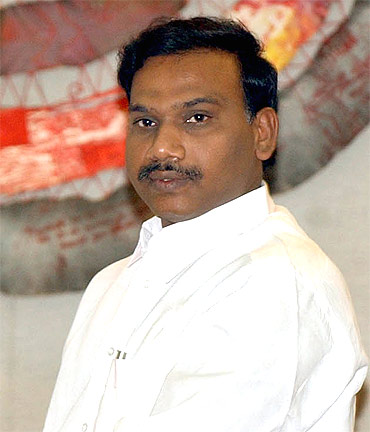
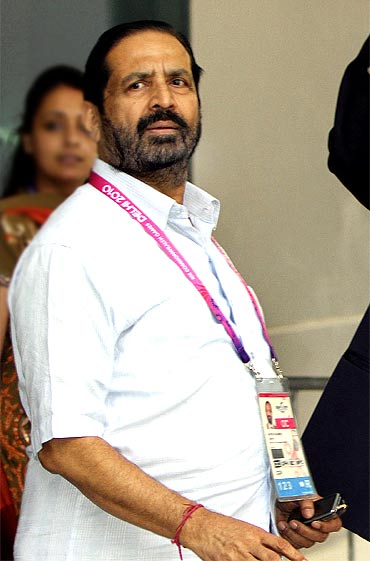
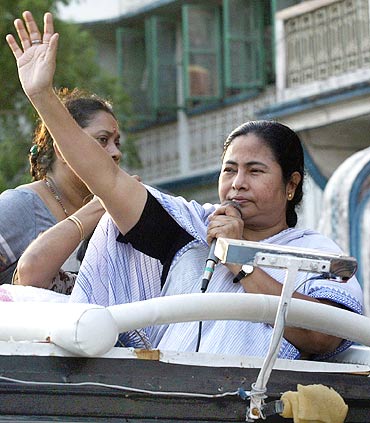
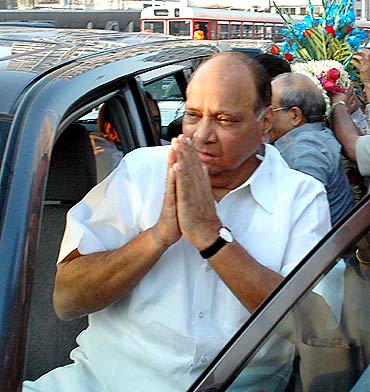
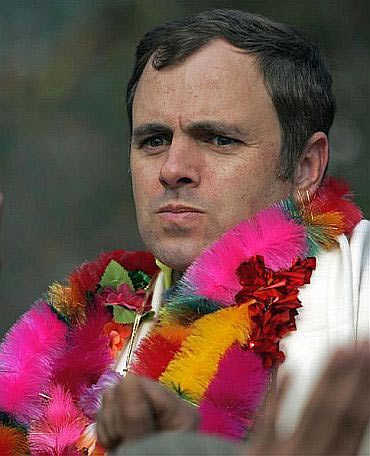
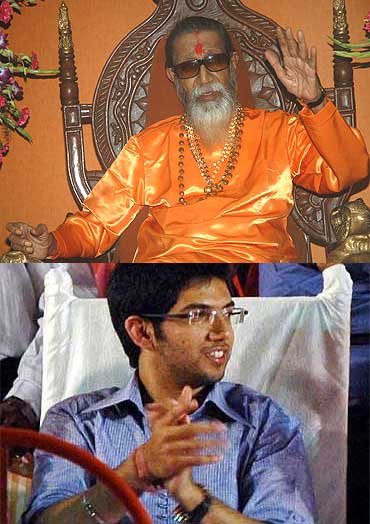
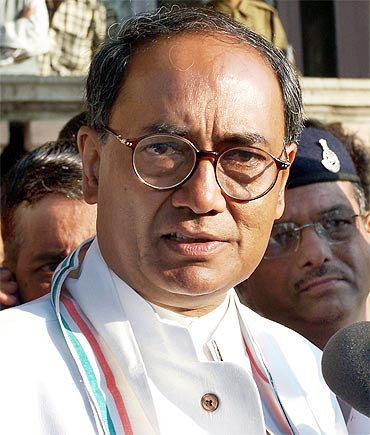
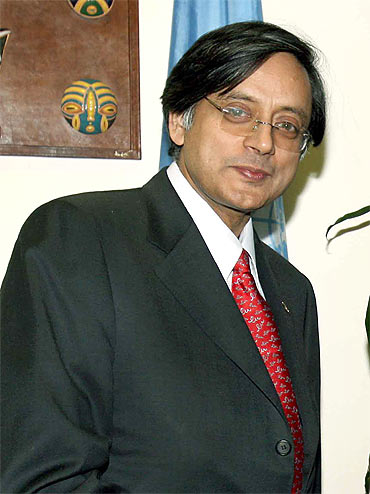
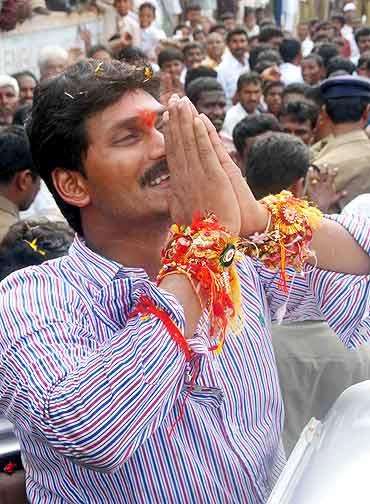
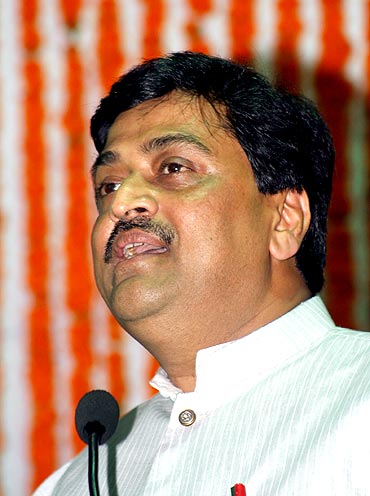
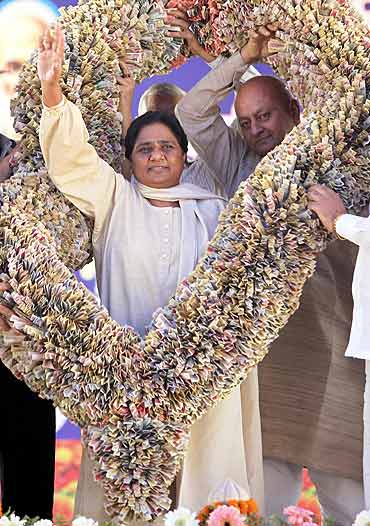
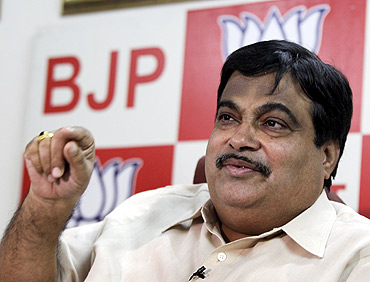
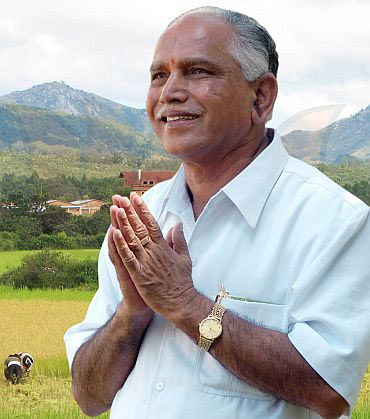

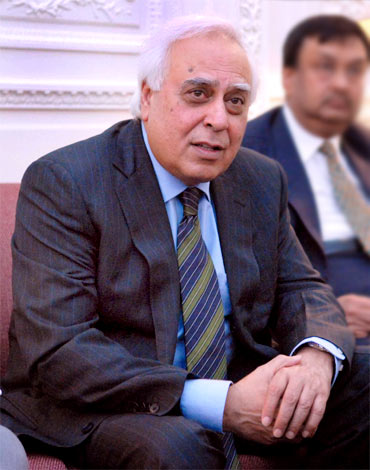

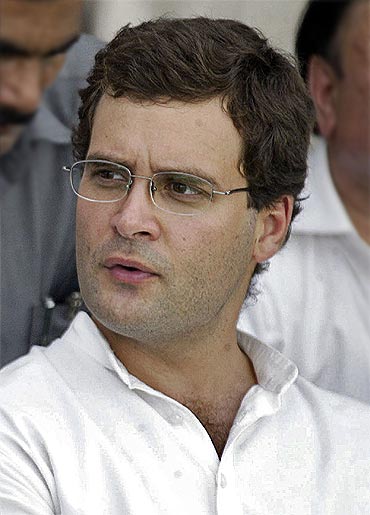

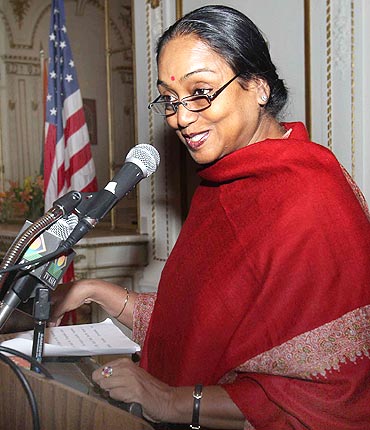
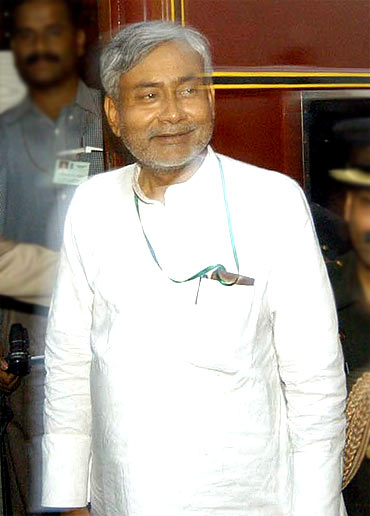
article